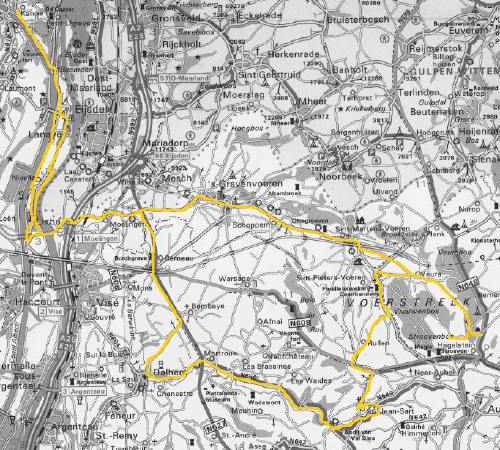Walk into the library, see Zizek’s The Parallax View amongst the ‘new aquisitions’, borrow the book after seeing one chapter deals with Henry James’ late novels. After cycling sit in the garden and read through the book, starting with the introductions and using the endnotes and the index. In the morning read the chapter on Henry James. Conclusion: this is not a book for me — I won’t read all of it. Yet it has some good bits and good, controversial observations.
If I would analyze in detail why I do not like Zizek, I’d need a week. I do not want to spend that time on Zizek. Yet because “everybody” loves Zizek, and because he’s so widely discussed I feel compelled to give my two cents.
Warning: these observations are made after a very very shallow reading of the book.
Already in the introduction it goes “wrong” — for me –. Zizek takes up short-circuiting as (good) critical practice, and Lacan als priviliged instrument. No, sorry, I don’t agree. Read on.
Then he gives two anecdotes that supposedly should illustrate the radical separation of the fields of abstract art and prisons, Benjamin and Stalin. Again I don’t agree with this view (Zizek nevertheless does as if this seperation is received knowledge). Following that he theorizes that there is a ‘parallax gap’, and sees this as a first step towards a rehabilitation of dialectical materialism. Well, it begins to be very difficult now, for me, to agree on anything he’s going to write when I disagree so much with his starting points… Then it’s off to Hegel against Kant.
A nasty remark would be that his recourse to the parallax view shows he’s not ready for radical multiperspectivism not for a view that focusses on mediation and translation instead of on objects perceived by subjects. (Hmm, with my shallow knowledge of Kant-Hegel-Heidegger-philosophy I certainly would not be able to hold up this point against Zizek).
Still, I do not give up. And in the same pages I am struck by some good, and controversial opnions. For instance when he states that it’s easy to fall in love with a multitude of freethinkers who blossomed in prerevolutionary France, or the October Revolution, but that it’s much more difficult to recognize the horrors of the forced collectivization, the attempt to translate the revolutionary fervor into a new positive social order (see p. 5). Stressing then, that Stalinism as philosphically speaking “imbicility incarnate” is exactly the point.
Now, that is interesting.
But then it’s back to Hegel, Hegel, Hegel and off to Lacan and I loose the plot. When it becomes an illustration of Hegel being right after all, and the topicality of Hegelianism, I’m simply not interested anymore.
I read on, (and I read all the endnotes). I come across beautiful quotes from Marx (p. 54). I come across an interesting analysis of why Stalinism was better than Nazism.
Then there is a whole chapter in which Zizek, as a Lacanian tries to criticize the cognitive psychology of the Churchlands, Dennett and Damasio. But well, whereas I am interested in a criticism of cognitive psychology, I’m not interested in Zizek’s criticism.
In the last chapter he goes more deeply into current political philosophy, criticizing Badiou, Ranciere, Hardt/Negri and Agamben, putting forward — again — Bartleby as the figure of political revolt, but giving it an interesting twist that makes Hardt/Negri’s ‘philosophy’ look superficial.
Yes, Zizek does (sometimes?) play the role of the ‘fool’, putting forward controversial opinions, that can force a breakthrough, or alter the perspective. That is good. (But why then should I wade through all the Hegelian dialectics?)
Yes, Zizek is incredibly good when it comes to using movies (stories and scenes) to illustrate his point. Also in this book. He has a sharp eye and a lucky hand in choosing his examples.
More generally, what I find disturbing is that the book seems to be extremely badly structured. Zizek just moves from one thing to another, and often I fail to see where it connects. (Worst example, a page on the Kalevala where it’s totally unclear why that passage is there in the article). Also it’s badly written — rethorical questions abound. It is full of sentences like “Is not this … exactly the Lacanian…”. (Uhmm, well, no). Okay, international english is our lingua franca…
So, I have the feeling that 1. Zizek’s always haunted by Hegelian concepts — he cannot think in any other way (even if he tries to), (but he also does not want to think in any other way). 2. Zizek truely believes Lacanianism (through Hegel) furnishes us with the best analysis of reality.
Well. But then I thought: whereas Badiou can be really scary — if you start to think through his political philosophy, Zizek in the end is mainly funny. I guess that’s a good thing?
